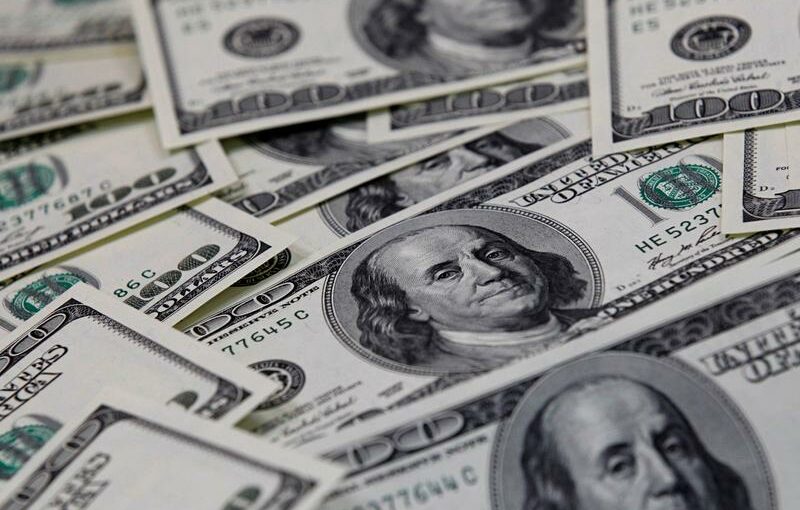NEW YORK (Reuters) – The dollar index fell to a seven-week low on Thursday, the Australian dollar hit a three-year high and safe havens weakened as global growth optimism sent government debt yields surging worldwide.
Easy financial conditions, the promise of fiscal stimulus and accelerating COVID-19 vaccine rollouts have boosted expectations that growth and inflation will accelerate.
More recently, bond yields after adjusting for inflation have also risen at a faster pace, indicating a growing belief that central banks may begin to pare back their ultra-loose policies, even as central bank officials have maintained their dovish rhetoric.
“It has been a global move, I think that’s one part of why the dollar wasn’t rallying even with higher yields,” said Vassili Serebriakov, an FX strategist at UBS in New York. “Those higher bond yields are a symptom of expectations of a strong economic rebound after the pandemic.”
The dollar dipped 0.26% against a basket of currencies to 89.797, its lowest since Jan. 8.
Data on Thursday showed that fewer Americans filed new claims for unemployment benefits last week amid falling COVID-19 infections.
Federal Reserve Chair Jerome Powell reiterated on Wednesday that the U.S. central bank would not tighten its policy until the economy improves.
Commodity-linked currencies, including the Australian, New Zealand and Canadian dollars, all hit three-year highs as their bond yields surged.
“The U.S. has actually lagged a lot of these other countries in terms of the yield moves,” said Erik Nelson, a macro strategist at Wells Fargo in New York, noting that New Zealand’s 10-year Treasury yield gained 18 basis points on Thursday.
That is “pretty stunning,” he said. “The commodity space has obviously been very hot recently.”
The Aussie got as high as $0.80007 against the greenback while the kiwi reached $0.7463.
The Canadian dollar got as far as 1.2468 loonies per U.S. dollar.
The euro also gained to a three-week high, despite its bond yield increases lagging other countries. It was last up 0.44% at $1.2224.
The safe-haven Japanese yen, which tends to underperform when global growth improves, weakened as far as 106.20 yen per dollar.
“Some of the currencies that typically don’t do well in a global rebound are lagging,” Serebriakov said. “There is some differentiation (in dollar weakness), it’s not just across the board the way it was last year when everything was driven by U.S. real yields falling and selling dollars across the board.”
Bitcoin was last up 2.67% on the day at $51,080, having recovered some of its losses from the start of the week.
Source: Read Full Article
